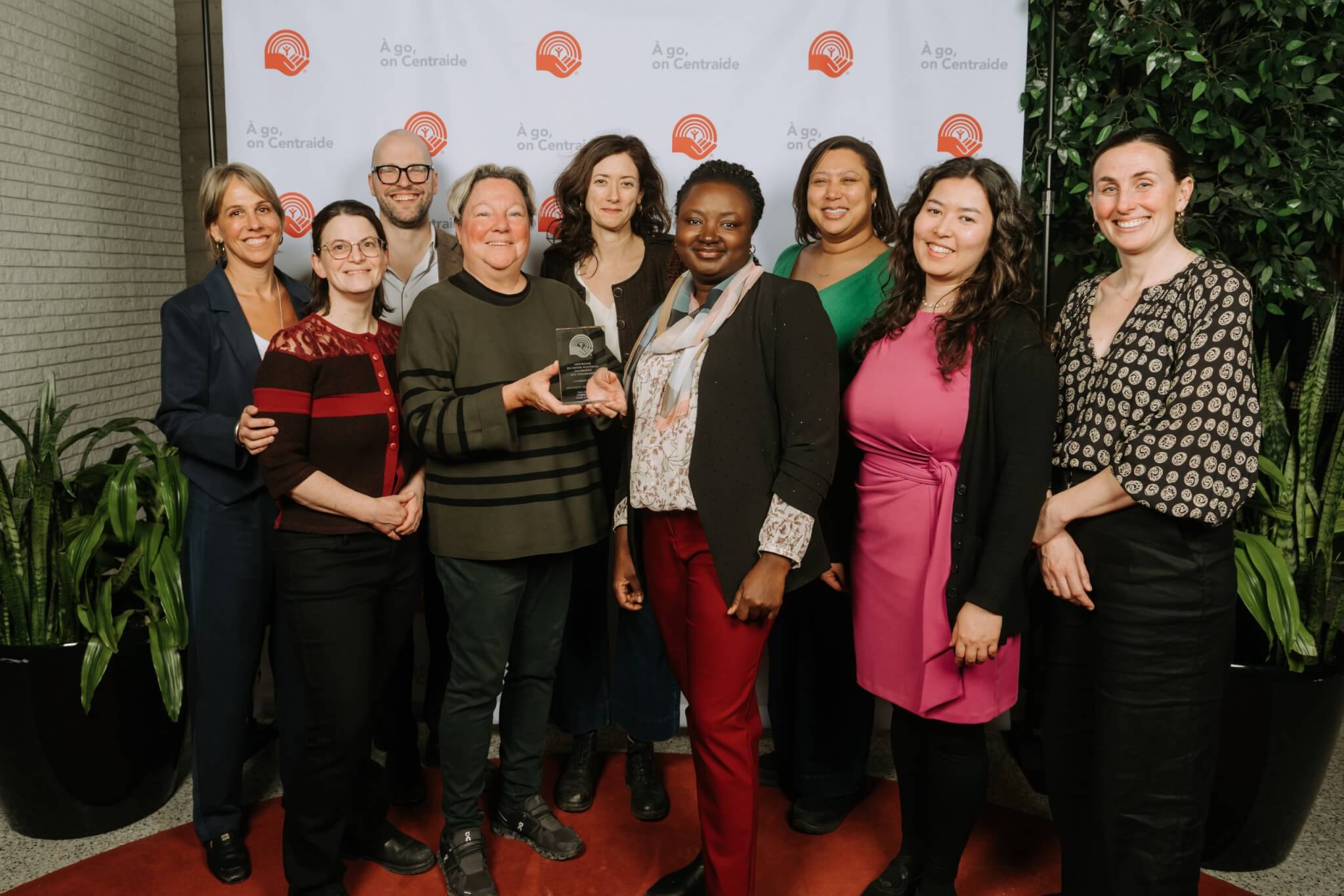
2026-02-24
The Depot Receives the Prix Solidaire
We are thrilled to share with our community that on Thursday, February 12, The Depot was awarded the Prix Solidaire – Healthy, Effective and Inclusive Governance by Centraide of Greater Montreal.
This award recognizes an organisation that demonstrates responsible and transparent financial management, clear and equitable human resource policies, effective planning, and governance practices that are healthy, inclusive, collaborative, and accountable to the community it serves.
We are proud of this recognition, and even prouder of the intentional work behind it.
Governance as a Foundation for Impact
Governance isn’t always visible. It happens in boardrooms, in planning sessions, in policy reviews, in consultations, and in the steady work of alignment. Yet it is governance that allows an organisation to move together toward meaningful outcomes, with clarity about roles, shared expectations, and accountability to community.
Over the past several years, The Depot has invested deeply in strengthening our governance practices. This work began with a strategic planning process grounded in consultation, reflection, and trust-building. Through broad engagement: including a strategic planning committee, staff engagement, a World Café process, and community consultations, we clarified our values, deepened our commitments to equity and anti-oppressive practice, and articulated a shared direction for the future.
Communication has been central: doing the work, reporting back, and ensuring our community understands both the “why” and the “how” of our decisions. We see this as an ongoing learning process, and we remain committed to continuously improving how we listen, share information, and stay accountable. Initiatives such as the rollout of our Community Contribution model are one example of how governance and strategy translate into practice.
A Collective Achievement
Strong governance isn’t just internal structure. It’s what allows us to act with clarity and accountability, make thoughtful choices, support our team, and remain responsive to the people and community we serve. It helps us keep moving toward our vision together.
— Jennifer Brennan and Marguerite Kinfack, Interim Co-Executive Directors
At a time when 1 in 5 Montrealers is experiencing food insecurity, we cannot do this work alone, and strong internal systems are essential to delivering stable, dignified, and effective programming.
The $10,000 prize attached to this award will be reinvested into strengthening our organisational capacity and long-term sustainability.
We extend our sincere thanks to Centraide of Greater Montreal for this honour and for their ongoing partnership.
Our vision remains clear: A thriving and connected community where nourishing food is accessible and recognized as a fundamental human right. Strong governance helps us move toward that vision together.
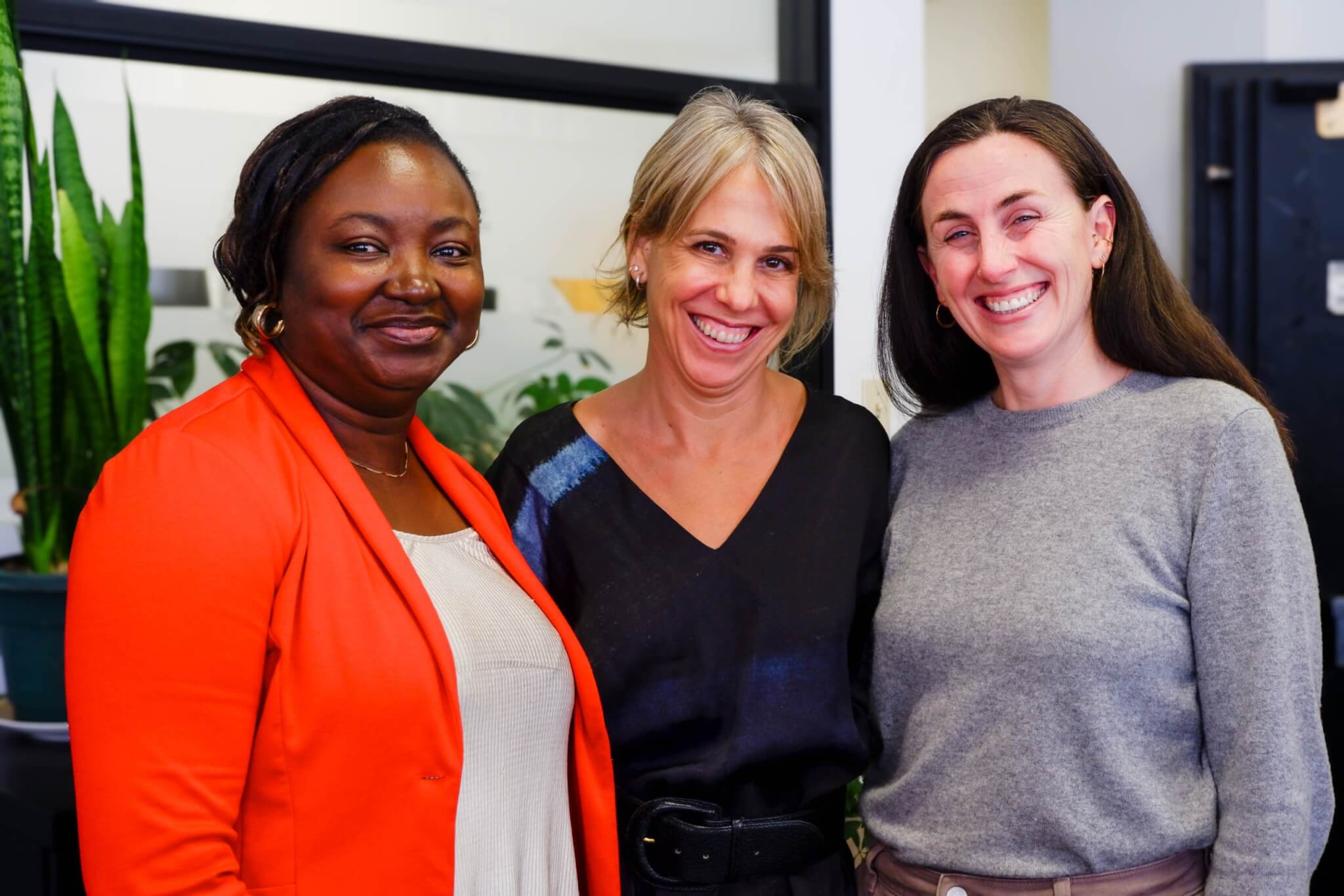
2026-01-15
A Message from The Depot’s Board
Dear Depot community,
We’re writing to share an important leadership update at The Depot.
After four years of dedicated leadership, Tasha Lackman will be concluding her role as Executive Director on January 30, as she steps into the role of President and Executive Director at Centraide of Greater Montreal. We look forward to continuing to collaborate with Tasha in her new role and celebrating her ongoing impact in the community sector.
We would like to sincerely thank Tasha for her outstanding contributions to The Depot. During her tenure, she strengthened internal systems and governance, guided the development of an ambitious strategic plan rooted in a clear mission, vision, and values, and led a period of thoughtful growth and innovation. Under her leadership, The Depot deepened partnerships and reinforced its role as a community food centre that goes beyond emergency food support to promote dignity, connection, and long-term change by addressing the root causes of food insecurity. We are deeply grateful for her care, leadership, and commitment.
As we move through this transition, and while the Board of Directors conducts a search for a new Executive Director, we have appointed Jennifer Brennan (right, in the photo) and Marguerite Kinfack (left, in the photo) as Interim Co-Executive Directors.
Jen currently serves as Director of Development and Communications, and Maggie as Director of Finance and Human Resources. Each brings over a decade of experience at The Depot, along with deep institutional knowledge, strong relationships across our community, and a shared commitment to our mission of ensuring access to nourishing food while working toward a more just and resilient food system. The Board has full confidence in their shared leadership.
The Depot’s programs and day-to-day operations will continue as planned. Our focus remains on providing consistent, high-quality support to our community while advancing the long-term work outlined in our strategic plan. Our staff, volunteers, and partners are well equipped to ensure continuity, care, and stability during this transition.
Thank you for being part of The Depot community and for your continued engagement and support.
With gratitude,
Susan Kessler, Board Chair
On behalf of The Depot Board of Directors
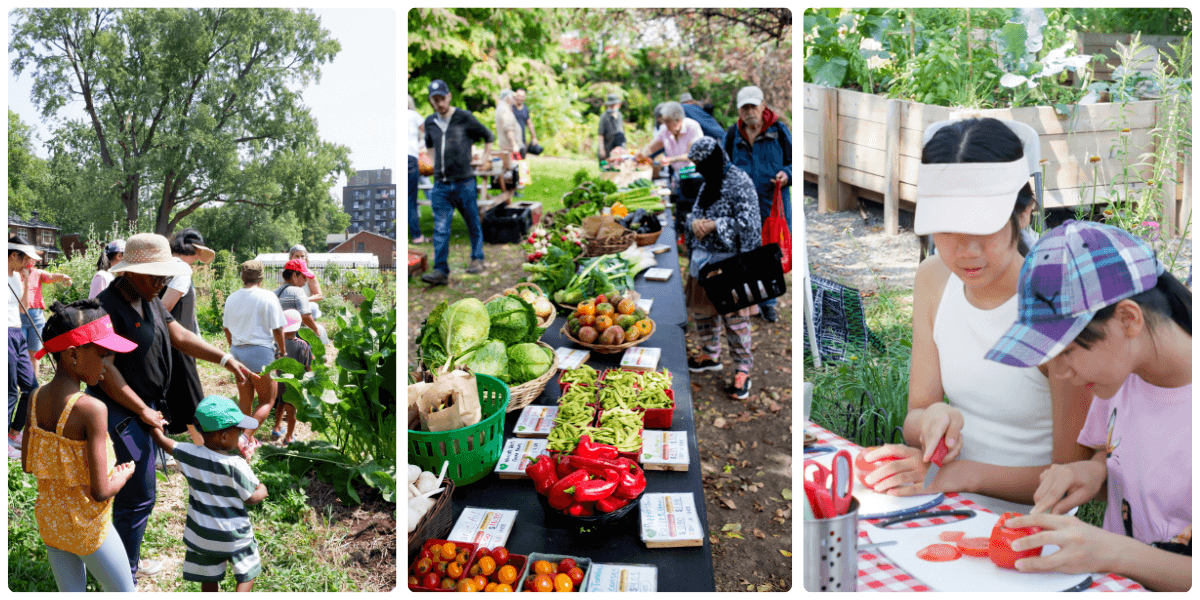
2025-10-16
During the municipal elections, let’s activate levers for a food secure future
An op-ed published in The Gazette by Tasha Lackman
As Montrealers prepare to vote this November, one issue connects us all: access to good, nourishing food. This World Food Day, it’s worth asking how our city can be part of building a food-secure future.
Food insecurity is an issue that must be addressed with decisive policy action at all levels. Each level of government has different levers to ensure we can all access enough nourishing food.
Food insecurity is directly related to lack of income, shaped directly by policy decisions. As Executive Director of The Depot Community Food Centre in NDG, I see every day how hunger chips away at people’s ability to hold jobs, succeed in school, and maintain mental and physical health. It fuels isolation and magnifies other struggles, such as housing.
While income supports are largely federal, municipalities have power to shape how food is grown, shared, and accessed. From urban agriculture and community markets to including food systems planning in development strategies, municipalities can help make access to nourishing food a right. This seems to be missing from the major municipal parties’ platforms.
With municipal elections on November 2, let’s focus on the local levers to create vibrant food systems that address food insecurity, while creating vibrant and connected communities. What could this look like?
Imagine that a short walk from where you live is a green space with gardens, a greenhouse, food markets, and community activities. When you walk by, delicious smells of cooking waft through the air, along with snippets of conversation, laughter, and the sounds of kids playing. You see people working together in the gardens, growing food for themselves and for the community. You see a market selling food, and when you go closer you see that the produce is from local farms. You also notice that each item has three prices to make it accessible to everyone. You see your neighbours, lots of familiar faces, but also people you haven’t seen before. You notice a group of kids participating in a cooking workshop at an outdoor kitchen, and people gathered around picnic tables. There are also community organizations at tables, offering information about the resources in the neighbourhood. You see a sign for an outdoor movie night on the community board.
This vision exemplifies a territorial food system: a community-based approach to growing, sharing, and accessing food. It doesn’t just reduce hunger; it builds social connection, promotes local resources, teaches valuable skills, and protects green spaces that help us adapt to climate change.
Spaces like this exist in our communities – but most are temporary, run by organizations like The Depot and our partners, and sustained through the support of philanthropy and community members. No reliable funding or infrastructure exists: no shelter, no storage, no water access. Imagine what we could do with support and the appropriate infrastructure?
This is not unique to The Depot. The Forum systèmes alimentaires territoriaux, an organization that brings together key stakeholders across Québec committed to access to healthy and sustainable food for all, developed a guide to ensure that food security and food systems were on the menu this election season. Among the key levers they identify across the province for building territorial food systems include developing and sustaining public markets and gardens.
As we head to the polls, let’s ask our candidates which levers they’ll pull to make the vision of a vibrant community food hub a reality. A city where no one goes without food must be a priority and the foundation on which our city is built in order for everyone to thrive.
Join us this World Food Day — October 16, 4:00–6:00 PM at Georges-Saint-Pierre Park — for Eat Think Vote, a pre-election event to meet the NDG candidates and explore how we can build a food-secure future together.
→ See the op-ed published in The Gazette
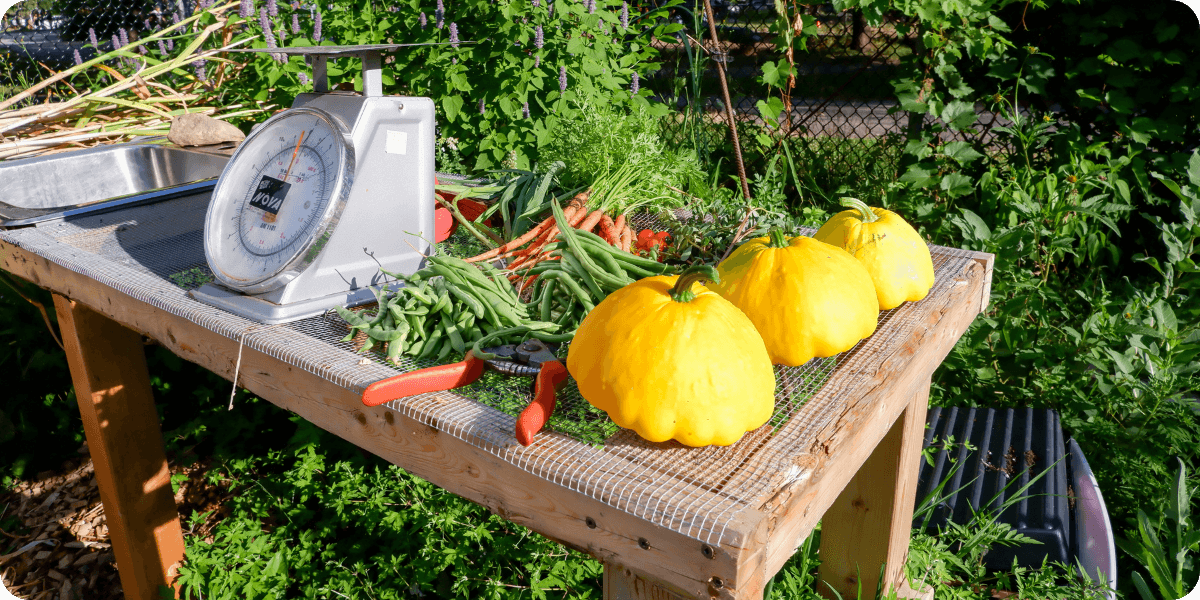
2025-08-13
Sharing Abundance
How Gardeners are Giving Back at our Fielding Garden
At The Depot, we believe food is more than fuel. It’s connection, care, and community.
This summer, our Urban Agriculture team launched a small but mighty pilot: Once a month, we are adding one freshly picked item from our Fielding Collective Garden to 100 emergency food baskets delivered to community members homes across NDG, reaching those who can’t make it to The Depot in person due to limited mobility or other barriers.
The Seed of an Idea
The idea for this project sprouted during conversations in the garden. Gardeners were noticing just how much the land was producing — more than some could use themselves — and many wanted to share the extra.
“At the height of the harvest, we can take home up to two whole grocery bags of produce per week. That’s a lot and often more than I need.”
“I often don’t want to take my full share of the harvest. It’s a large quantity and it takes energy to process it all before it spoils. I would prefer to share with others.”
And they were right to notice. In recent years, our Urban Agriculture team has improved how we grow: better soil care, smarter planting, and more efficient use of space. The result? A bigger, healthier harvest.
That abundance sparked something important. Gardeners didn’t just want to enjoy the harvest — they wanted to share it.
So the team created a simple plan:
- Each month, gardeners set aside 100 portions of surplus produce
- We add these to our home delivery baskets, along with a small note
- The result: freshness, care, and a sense of connection in every basket
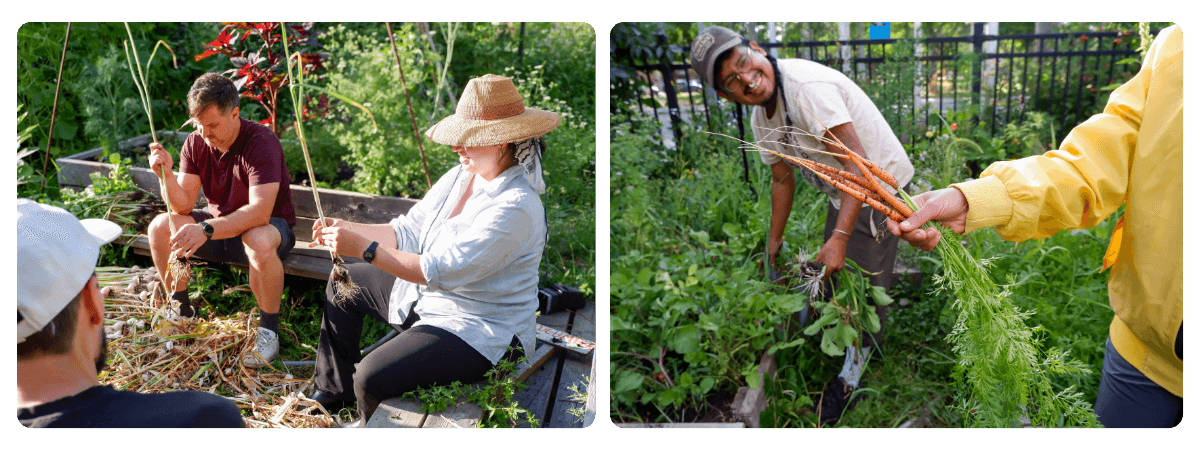
A New Way to Give and Receive at The Depot
While food support is a big part of what we do, The Depot is about more than just food. It’s also about building community, learning together, and creating space where everyone feels welcome.
Even while receiving, people give by showing up, sharing their time, knowledge, and stories. This balance of giving and receiving is something we see every day, and it comes to life in a special way in our collective gardens.
Our gardens are vibrant community spaces where people build relationships, share knowledge, and experience the well-being that comes from being close to the land and to each other.
“I come to socialize, learn more about gardening… and for the butterflies and bunnies!”
For many gardeners, being in connection with the land and with one another strengthens the generosity they already have and inspires them to give back to the wider community.
At The Depot, we have learned that when we tend to the garden, it gives back. And when we care for our community, it grows stronger too. Giving to each other helps grow the abundance we all share.
Op-Ed published in The Gazette
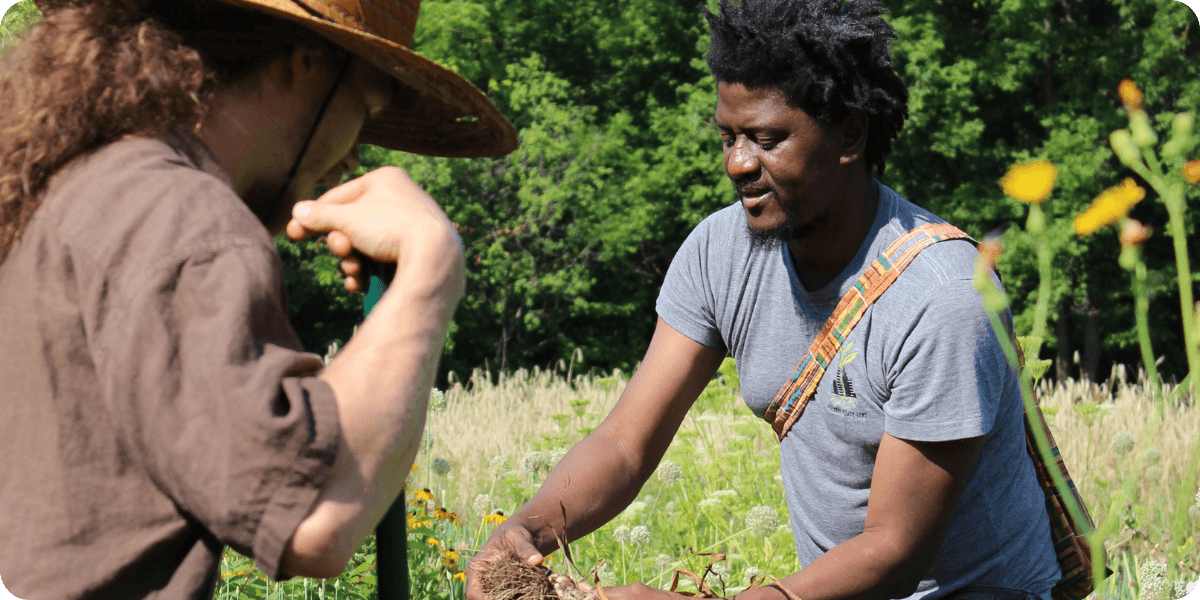
2025-06-18
Meet Hamidou!
A farmer spotlight
When Hamidou immigrated to Montreal in 2008, he faced challenges familiar to many newcomers. Although he was a certified accountant in Niger, his credentials weren’t recognized in Quebec. At the same time, he found himself searching for familiar foods — vegetables he had grown up eating — but they were hard to find or only available imported, frozen, or dried. These experiences inspired a new direction. He enrolled in the Institut de technologie agroalimentaire de Saint-Hyacinthe, to deepen his knowledge of local farming so that he could grow the foods he missed.
In 2017, he launched Hamidou Horticulture, a farm and training business that now cultivates over 100 varieties of African crops. His work fills a meaningful gap for many immigrant communities across Montreal, offering a taste of home, and sparking powerful moments of joy and reconnection through long-missed cultural foods.
A Growing Partnership with The Depot
Hamidou’s relationship with The Depot began two years ago, shortly after he started growing at the Loyola garden. He had heard about The Depot through the community and, when a role opened up for a Collective Gardens Facilitator, he saw it as an opportunity to connect more deeply with NDG and its residents.
The collaboration quickly became reciprocal: the collective gardens team benefitted from Hamidou’s agricultural expertise, while he received real-time feedback from staff and participants through the harvest samples he shared. Soon, the gardens began incorporating more African crops, and the Marché Dépôt started offering a wider selection of his culturally rooted produce. This year, The Depot has committed to purchasing from Hamidou each week, offering him greater financial stability and planning power:
“It allows me to have guaranteed maximum quantities for certain vegetables. It gives me predictability, and also lets me seek out new clients for the rest of my harvest.”
Beyond the practical benefits of the partnership — financial stability, predictable sales, and valuable community feedback — what keeps Hamidou rooted at The Depot is something deeper: connection. Farming can be an isolating profession, but his role here has offered a sense of belonging.
“It breaks isolation. A farmer is often very alone on their farm… here, I’m part of a team.”
As we move into a new summer season, we’re proud to nurture partnerships like this one, where food, culture, and community all take root and flourish together.
